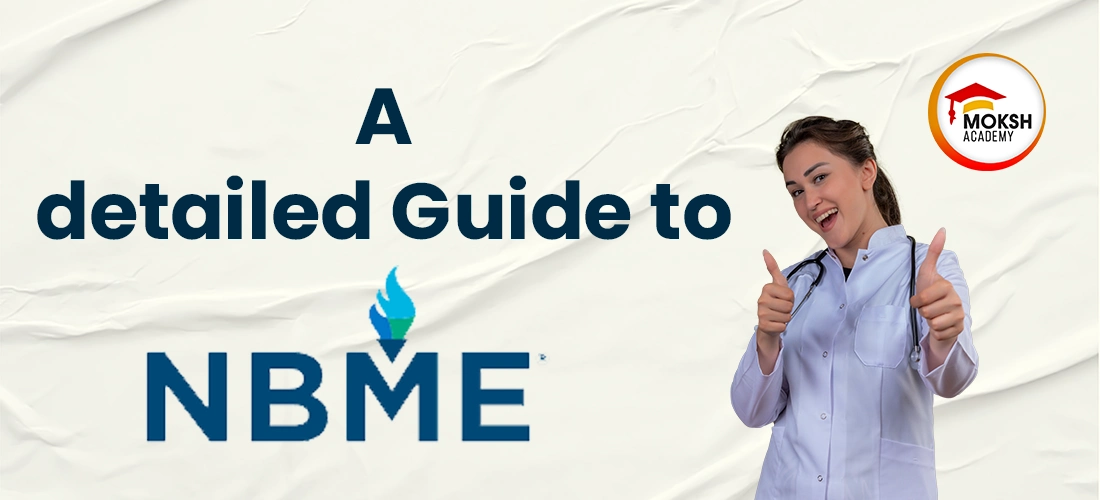
Introduction to the NBME and its importance in medical education
The National Board of Medical Examiners (NBME) plays a vital role in medical education, particularly in the United States. It is an independent, non-profit organization that develops and administers standardized exams for medical students and professionals. These exams, such as the United States Medical Licensing Examination (USMLE) Step 1 and Step 2, are essential for evaluating the knowledge and skills of aspiring doctors. Understanding the significance of the NBME exams and how to prepare for them is crucial for every medical student.
The NBME exams serve as a benchmark for medical knowledge and clinical skills, ensuring that healthcare professionals are competent and capable of providing quality patient care. These exams assess a wide range of medical topics, covering basic sciences, clinical diagnosis, and management. They are standardized, reliable, and objective measures of a student's readiness for residency training and medical practice.
Understanding the NBME exams - USMLE Step 1, Step 2, Step 3 and more
The NBME test administers various exams, but the most prominent ones are the USMLE Step 1, Step 2 and Step 3. The NBME USMLE Step 1 focuses on basic science principles and is usually taken after the second year of medical school. It tests a student's understanding of foundational concepts such as anatomy, physiology, pharmacology, and pathology.
The NBME USMLE Step 2 assesses a student's clinical knowledge Step 2 CK evaluates a student's ability to diagnose and manage clinical scenarios.
On the other hand, NBME USMLE Step 3 focuses on Patient management.
Apart from the USMLE exams, the NBME test also offers subject-specific exams, such as the Advanced Clinical Exams (ACE), which focus on specialized areas like surgery, paediatrics, and psychiatry. These exams provide an opportunity for students to demonstrate their expertise in specific medical disciplines.
How to register for an NBME exam
Registering for an NBME exam is a straightforward process. First, visit the NBME website and create an account if you don't already have one. Once you have an account, log in and navigate to the "Examinations" section. Here, you will find a list of available exams, along with their descriptions and eligibility criteria.
Choose the exam that aligns with your educational goals and click on the registration link. Fill out the required information, including your personal details, medical school affiliation, and preferred exam date. Pay the registration fee, which varies depending on the exam, and submit your application.
After successfully registering, you will receive a confirmation email with further instructions, including how to schedule your exam and access study materials. Make sure to review the exam policies and guidelines to ensure a smooth and successful testing experience.
NBME exam format, structure and Fees.
Understanding the format and structure of an NBME exam is essential for effective preparation. The exams typically consist of multiple-choice questions (MCQs) that assess your ability to apply medical knowledge to clinical scenarios. Each question presents a patient case or a clinical scenario, followed by a stem and a set of answer choices.
USMLE Step 1
NBME step 1, Comprehensive Basic Science Self-Assessment is a tool that can help you review what you know, see how you're doing, and even give you an idea of how likely you are to pass the USMLE Step 1 if you take it in a week. It's there to boost your confidence and make sure you're well-prepared for the actual exam day. NBME Step 1 plays an important role.
The NBME USMLE step 1, Comprehensive Basic Science Self-Assessment has different versions, each with 200 multiple-choice questions. You can pick between two ways to take it.
- Standard-Paced: This is like a real test and has four sections, each with 50 questions. You get 1 hour and 15 minutes for each section.
- Self-Paced: This also has four sections with 50 questions each, but you have more time. You get up to 5 hours for each section, so you can take your time.
Fee - $60
USMLE Step 2
Use the Comprehensive Clinical Science Self-Assessment to check how ready you are, strengthen what you know, and make the most of your study time before the USMLE Step 2 CK exam.
The Comprehensive Clinical Science Self-Assessment comes in different versions, each with 200 multiple-choice questions. You can pick how you want to take it.
- Standard-Paced: This is like a real test. It has four sections, each with 50 questions, and you get 1 hour and 15 minutes for each section.
- Self-Paced: This also has four sections with 50 questions each, but you have more time. You get up to 5 hours for each section, so you can go at your own pace.
Fee - $60
USMLE Step 3
Use the Comprehensive Clinical Medicine Self-Assessment to check how ready you are, strengthen what you know, and make the most of your study time before taking the USMLE Step 3.
The Comprehensive Clinical Medicine Self-Assessment has different versions, each with 176 multiple-choice questions. You can choose how you want to take it.
- Standard-Paced: This is like a real test. It has four sections with 33 questions each, and you get 50 minutes for each section. There's also one section with 44 questions, and you get 66 minutes for that.
- Self-Paced: This follows the same format, but you have more time. You get 3 hours and 20 minutes for the sections with 33 questions and 4 hours and 24 minutes for the section with 44 questions. So, you can go at your own speed.
Fee - $60
It is crucial to familiarize yourself with the exam format and practice answering multiple-choice questions within the allotted time to improve your speed and accuracy.
Tips for effective NBME exam preparation
Preparing for an NBME USMLE Step 1, Step 2 CK, Step 3 exam requires a systematic approach and a comprehensive study plan. Here are some tips to help you maximize your preparation and perform well on exam day:
- Start early and create a study schedule: Begin your preparation well in advance of the exam date, as the scope of the material can be vast. Create a study schedule that allows for adequate time to cover all the necessary topics while also incorporating regular breaks for rest and relaxation.
- Use trusted study resources: There are numerous study resources available for NBME exams, including textbooks, online platforms, and question banks. Choose resources that are highly recommended by peers and professionals in the field. Some popular resources include First Aid for the USMLE, UWorld, and NBME self-assessments.
- Practice with sample questions: Practice is key to success on NBME exams. Solve as many sample questions as possible to familiarize yourself with the exam format and content. Utilize question banks and NBME self assessment to gauge your readiness and identify areas of weakness that require further review.
- Focus on high-yield topics: While it is essential to have a broad understanding of medical concepts, prioritize high-yield topics that are commonly tested on NBME exams. Reviewing topics such as cardiovascular diseases, infectious diseases, and basic pharmacology will give you a solid foundation for answering exam questions.
- Simulate exam conditions: As the exam day approaches, simulate exam conditions during your practice sessions. Set a timer and attempt practice questions within the allocated time. This will help you develop time management skills and build endurance for the actual exam.
By following these tips, you can enhance your preparation and approach the NBME examination with confidence.
Using NBME self-assessments for gauging your readiness
NBME self-assessments are valuable tools for assessing your knowledge and readiness for the actual exam. These assessments simulate the exam experience and provide an estimate of your performance on the real test. They consist of a set of practice questions designed to resemble the actual NBME exams, covering a range of medical topics.
Taking NBME self assessment at different stages of your preparation allows you to track your progress and identify areas that need improvement. Analyze your performance and pay attention to the topics and question types where you struggle the most. Use this information to guide your study plan and focus on reinforcing your weak areas.
It is important to note that NBME self assessment are not meant to predict your actual exam score with 100% accuracy. However, they serve as useful indicators of your overall preparedness and can help you identify any gaps in your knowledge.
Accessing and utilizing the NBME Free 120 questions
The NBME Free 120 questions are a valuable resource for exam preparation. These questions, available for free on the NBME website, are similar in format and content to the actual NBME examination. They cover a wide range of medical topics and provide an opportunity to practice applying your knowledge to clinical scenarios.
To access the NBME Free 120 questions, visit the NBME website and navigate to the "Examinations" section. Look for the link to the Free 120 questions and click on it. You will be directed to a page where you can download the questions and accompanying answer explanations.
Utilize the NBME Free 120 questions as a self-assessment tool to gauge your understanding of various topics. Set aside dedicated study sessions to work through these questions, and review the answer explanations thoroughly. Pay attention to the concepts and principles tested in each question to reinforce your knowledge and improve your problem-solving skills.
NBME exam day tips and strategies
The day of the NBME exam can be nerve-wracking, but with the right strategies, you can approach it with confidence. Here are some tips to help you perform your best on exam day:
- Get a good night's sleep: Adequate rest is crucial for optimal cognitive function. Ensure you get a full night's sleep before the exam to wake up refreshed and focused.
- Eat a balanced meal: Fuel your body and brain with a nutritious meal before the exam. Include foods that provide sustained energy, such as whole grains, lean proteins, and fruits.
- Arrive early: Plan your commute to the testing centre and aim to arrive early. This will give you time to settle in, familiarize yourself with the surroundings, and calm any last-minute nerves.
- Stay calm and focused: During the exam, stay calm and focused on each question. Avoid dwelling on previous questions or rushing through the exam. Take deep breaths if you feel anxious and trust in your preparation.
- Manage your time: Time management is crucial during the exam. Pace yourself and allocate a specific amount of time for each question or block of questions. If you encounter a challenging question, make an educated guess and move on to avoid getting stuck.
By following these tips, you can navigate the exam day smoothly and perform to the best of your abilities.
Resources for NBME exam prep - books, online platforms, and study materials
Preparing for NBME examination requires access to reliable study resources. Here are some widely recommended resources that can aid your preparation:
- Moksh Academy Qank – Moksh Academy’s Qbank is one of the best resources for NBME Exam preparations. It has more than 1,000 questions on every subject and system. Specifically designed just like the actual exam and also shows a report after completing the mock test.
- First Aid for the USMLE: This comprehensive review book is a staple for many medical students. It covers high-yield topics across various medical disciplines and provides concise explanations and mnemonics for easy retention.
- UWorld: UWorld is a popular online question bank that offers a vast library of practice questions for NBME exams. It provides detailed answer explanations and allows you to create custom quizzes to focus on specific topics.
- NBME self-assessments: The NBME test offers self-assessments that closely resemble the actual exam format. These assessments are valuable tools for gauging your readiness and identifying areas for improvement.
- Online forums and study groups: Participating in online forums and study groups can be beneficial for discussing challenging concepts, sharing study strategies, and gaining insights from peers who have already taken the exam. Websites like Reddit and Student Doctor Network are popular platforms for such discussions.
Remember, it is essential to choose resources that align with your learning style and preferences. Experiment with different resources to find the ones that work best for you.
NBME exam FAQs and common misconceptions
As you prepare for NBME exams, you may come across several frequently asked questions and common misconceptions. Here are some clarifications to help address them:
1. Are NBME exams the same as the USMLE exams?
Yes, the NBME administers the USMLE exams, which are required for medical licensure in the United States.
2. Are NBME self assessment predictive of my actual exam score?
While NBME self-assessments provide a good estimate of your overall preparedness, they may not predict your exact exam score. They should be used as a guide for identifying areas of improvement.
3. Should I solely rely on NBME practice exams for preparation?
While NBME practice exams are valuable tools, it is essential to supplement your preparation with a variety of study resources. Use textbooks, online platforms, and question banks to gain a comprehensive understanding of the exam content.
4. How many times can I take an NBME exam?
The number of times you can take an NBME exam depends on the specific exam and the policies set by your institution. Check with your medical school or the NBME website for detailed information.
By addressing these common questions and misconceptions, you can approach your exam preparation with clarity and confidence.
Conclusion
Preparing for NBME exams requires dedication, a systematic approach, and access to reliable study resources. Understanding the significance of these exams and familiarizing yourself with their format and content is crucial for success. By following a well-structured study plan, utilizing practice questions and self-assessments, and accessing trusted resources, you can enhance your preparation and perform your best on exam day. Remember to stay focused, manage your time effectively, and trust in your abilities. With thorough preparation and the right mindset, you can conquer the NBME examination and embark on a successful medical career.



